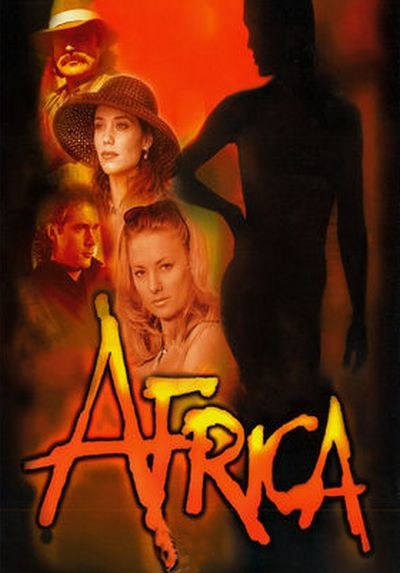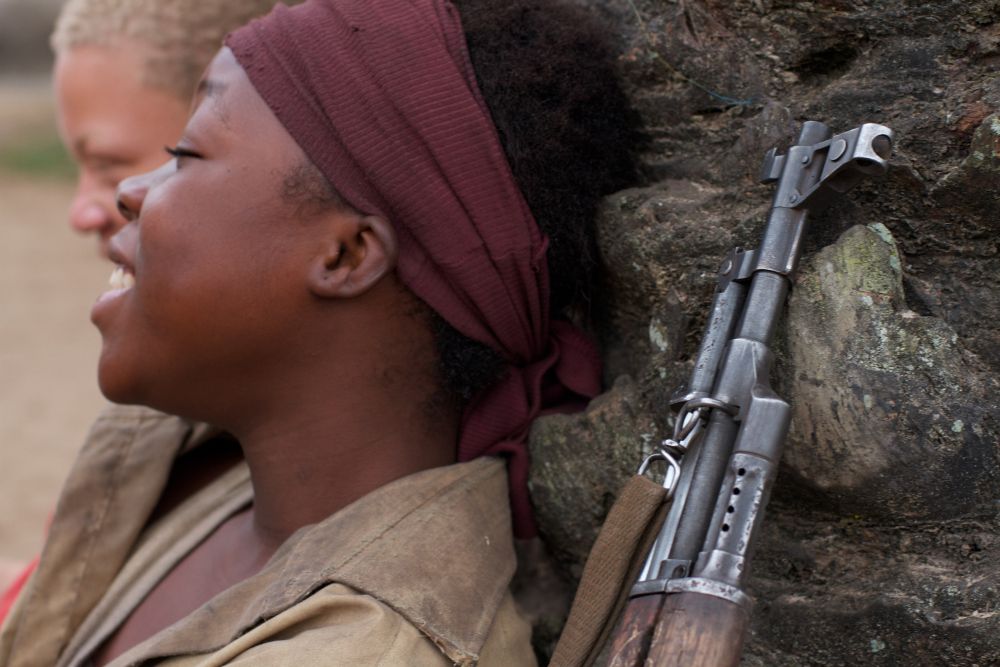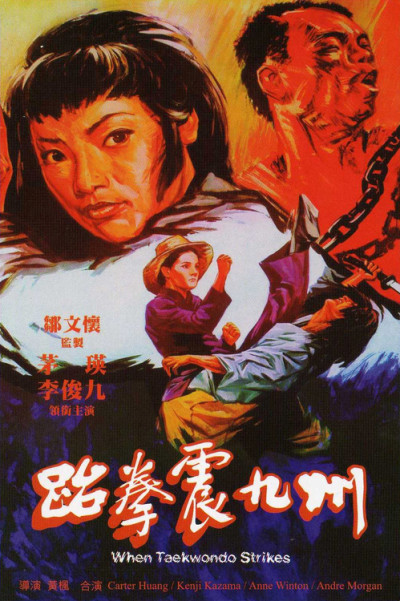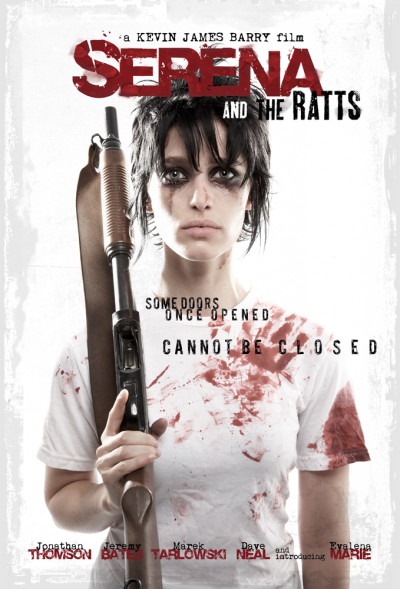“I lost my virginity. I lost my innocence. The world seems to regard this as the same thing as honor, but I do not.”
–Sarah Tolerance, Point of Honour
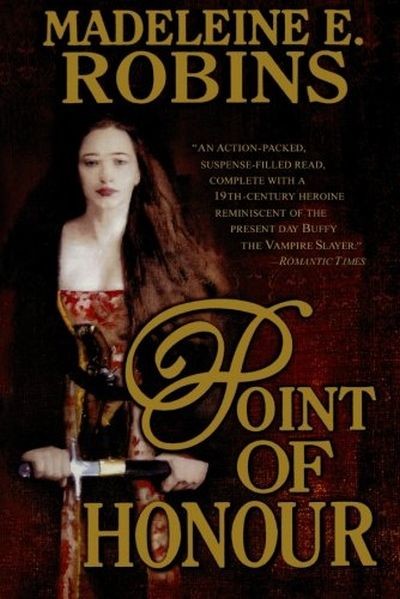 Over the last several decades, the detective genre has come to be graced by quite a few brave, gun-packing female P.I.s, who can handle the rough stuff on the mean streets of the urban jungle, as well as the more cerebral arts of observation and deduction. Robins’ Sarah Tolerance is one of this sisterhood, but with a key difference: her beat is the London of 1810, and the guns she packs are one-shot flintlocks –so it’s practical to wear a sword for backup, and luckily her brother’s now-deceased fencing master (with whom she ran away years ago) taught her to use one very capably. The term P.I. isn’t in use in her world; she bills herself as an “agent of inquiry,” a profession she’s created for herself.
Over the last several decades, the detective genre has come to be graced by quite a few brave, gun-packing female P.I.s, who can handle the rough stuff on the mean streets of the urban jungle, as well as the more cerebral arts of observation and deduction. Robins’ Sarah Tolerance is one of this sisterhood, but with a key difference: her beat is the London of 1810, and the guns she packs are one-shot flintlocks –so it’s practical to wear a sword for backup, and luckily her brother’s now-deceased fencing master (with whom she ran away years ago) taught her to use one very capably. The term P.I. isn’t in use in her world; she bills herself as an “agent of inquiry,” a profession she’s created for herself.
For most serious readers, any mention of the Regency period immediately conjures the thought of Jane Austen, who introduced so many of us to it, and directly or indirectly influenced just about every later writer who employed that setting. Robins is one of them; she calls her predecessor “one of the sharpest, funniest writers in the English language,” and tips a hat to her with the opening sentence here: “It is a truth universally acknowledged….” But the rest of that sentence lets us know immediately that her picture of the Regency world encompasses a much broader and darker canvas than Austen’s: this is not only a world of aristocrats and landed gentry, but of harlots and bawds, pickpockets and Bow Street Runners, and a world where sinister things can go on. And where Austen’s heroines might push the envelope of social conventions a bit (Lizzie Bennett, for instance, is smarter and more outspoken than many males then –or now– are really comfortable with), Sarah will outright defy them. The typical Austen heroine doesn’t pack (and use) weapons, wear male-style breeches and ride a horse astride rather than side-saddle, nor live in a cottage out back of her aunt’s high-end brothel and have a male prostitute for a friend.
This book is a bit of a challenge to classify. It’s definitely a mystery (and, before long, a murder mystery); and one with an indebtedness to Dashiel Hammet that I recognized even before reading Robins’ mention of him in the same sentence with Austen –which has to be the first time in history that pair was juxtaposed! But it also has a claim to be science fiction (if you classify alternate-world yarns as SF), because this is a slightly alternate Regency England, where the regent is Queen Charlotte. (Robins explains the few other minor differences in her “Note on History, and of Thanks.”) This isn’t, as some reviewers have supposed, a pointless quirk; it plays into the fabric of Tory vs. Whig political infighting that’s crucial to the plot. (In writing alternate-world fiction, the diverging premise has to be something that could plausibly have happened. That test is met here, since in this world Prince George’s marriage to a Roman Catholic wasn’t kept secret, and was wildly unpopular with commoners and ruling class alike; and there was ample precedent in other countries for royal women to hold regencies, while England itself had had a few ruling Queens.) It brings to life a setting so nearly like real-world Regency England, though, that it qualifies in my book as historical fiction. (Some people have apparently classified it as a “romance,” but it doesn’t follow the conventions of the romance genre as the book trade would define that.)
If classifying it could be a challenge, though, rating it wasn’t. I really like this period of history (as a fictional setting –I wouldn’t have liked to have lived in it!), with its more formal manners and speech, the slower pace of a world attuned to horses and written messages rather than cars and cell phones, the grace of a lifestyle that’s not yet complicated and coarsened by high technology. Added to the appeal of the setting is that of the central character. Sarah is a wonderful, well-realized creation: not perfect, but principled; kind, generous, honest, smart, brave, capable; no bully, but well able to hold her own in a fight –in short, just about everything I admire in a heroine. Robins delivers a page-turning plot, spiced with some action scenes, centering around a mystery that’s really challenging (I figured out most of it slightly ahead of the big reveal, but not all of it!), and does a good job of tying one plot strand, that might have seemed pointless to some readers, to the main plot in a brilliant way. Her style is pitch-perfect for the setting, with a bit of a 19th-century flavor that’s not exactly like the original, but still lets you know you aren’t reading something dumbed down to the lowest common denominator, nor limited to a 200-word vocabulary. She captures a lot of the authentic idioms and flavor of actual Regency speech, and provides enough description to give the writing a “you are there” quality.
Obviously, her treatment of sexual matters is franker than Austen’s, not shying away from the fact that this was a period with a gender-based double standard that stinks as badly as the manure and sewage in the streets, where just one of the king’s sons had no less than 10 out-of-wedlock kids and London alone had some 50,000 prostitutes (by the century’s end, it would be 100,000). But there’s no explicit sex here, and despite Sarah’s “fallen woman” status and sexual choices we might disagree with, she definitely comes across as a woman who takes sex seriously, who respects herself and others, and doesn’t stoop to exploitative or lewd behavior; nothing she’s done or does here makes us disrespect her. As far as bad language goes, there’s some, as there actually was in the speech of that day; not a plethora of it, and I’d guess mostly not too rough, though I can’t tell. This copy was bought used, and it turns out a previous owner used a dark pen to blot out most of the cuss words. (Sigh! As a writer myself, though I personally feel that usually the less bad language a book has, the better, if a writer chooses to put it in, I think his/her choice should be respected enough to let readers read it as it was intended to be, and make their own evaluations of it.)
Every time I read in this book, I was glued to the page; I’d have read it non-stop if I could have, and as it was finished it in just a bit over two weeks, which for me is a pretty quick read, indicative both of its interest level and its smooth flow. I’d love to see it adapted as a movie, provided it was done faithfully (though Hollywood’s track record for faithful adaptations of books isn’t great)..
Note: There’s some bad language here (as there actually was in the speech of that time), but not much of it. I’m guessing it’s not too rough, but I can’t say for sure –I read this in a used copy, and a previous owner had used a dark pen to blot out most of the cuss words!
Author: Madeleine E. Robins
Publisher: Tor, available through Amazon, both for Kindle and as a printed book.
A version of this review previously appeared on Goodreads.

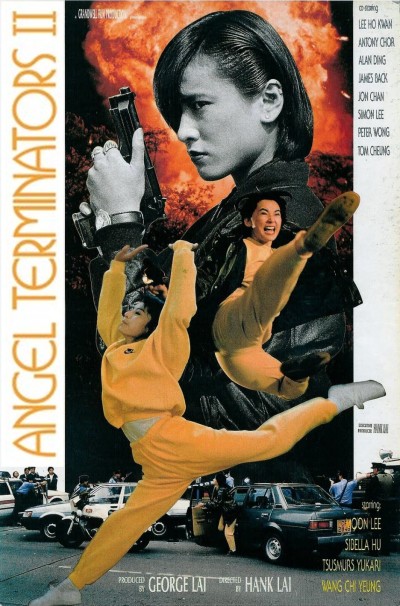 I have not seen Angel Terminators, so cannot comment on its merits or flaws. However, it does not appear that this impacted my thorough enjoyment of this slice of early 90’s Hong Kong goodness, and nor did the mangled subs which leave me a little vague on some details. The two heroines are Chitty (Lee) and Bullet (Oshima), who are… Cousins? Sisters? Not sure. Bullet has just got out of prison, having turned to delinquency after blaming her policeman father for the death of her mother. He and his partner (Hu) – who adds to the confusion because everyone calls her Big Auntie – try to achieve a reconciliation, but Bullet is unimpressed. She goes to her former gang boss for money, having taken the fall and gone to jail for him, but he just wants Chitty to become a hostess. The fight than ensues, kicks off a chain of events which leads to Bullet stealing some jewels belonging to the boss, who unleashes the accurately-named Brother Mad (Wong).
I have not seen Angel Terminators, so cannot comment on its merits or flaws. However, it does not appear that this impacted my thorough enjoyment of this slice of early 90’s Hong Kong goodness, and nor did the mangled subs which leave me a little vague on some details. The two heroines are Chitty (Lee) and Bullet (Oshima), who are… Cousins? Sisters? Not sure. Bullet has just got out of prison, having turned to delinquency after blaming her policeman father for the death of her mother. He and his partner (Hu) – who adds to the confusion because everyone calls her Big Auntie – try to achieve a reconciliation, but Bullet is unimpressed. She goes to her former gang boss for money, having taken the fall and gone to jail for him, but he just wants Chitty to become a hostess. The fight than ensues, kicks off a chain of events which leads to Bullet stealing some jewels belonging to the boss, who unleashes the accurately-named Brother Mad (Wong).





